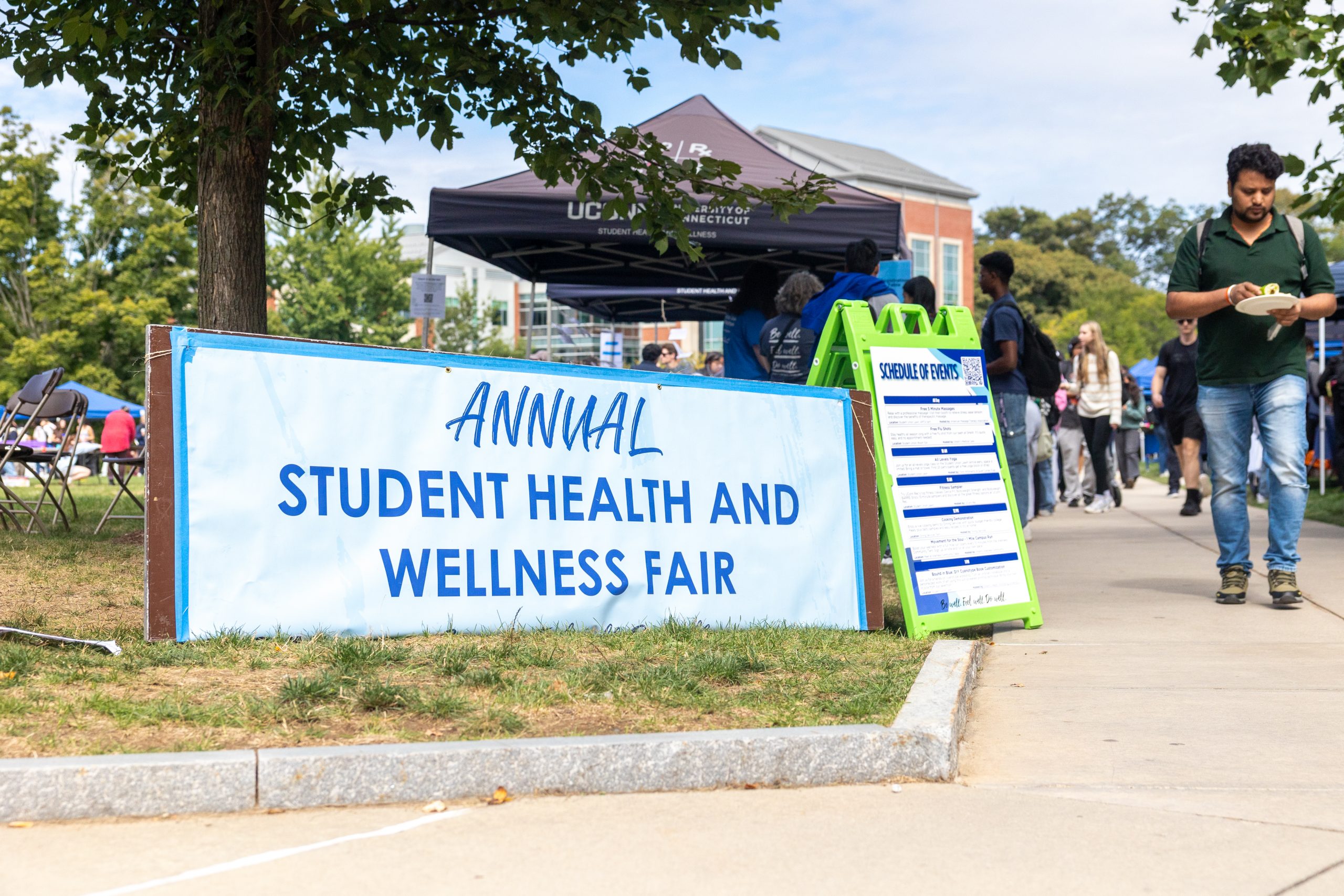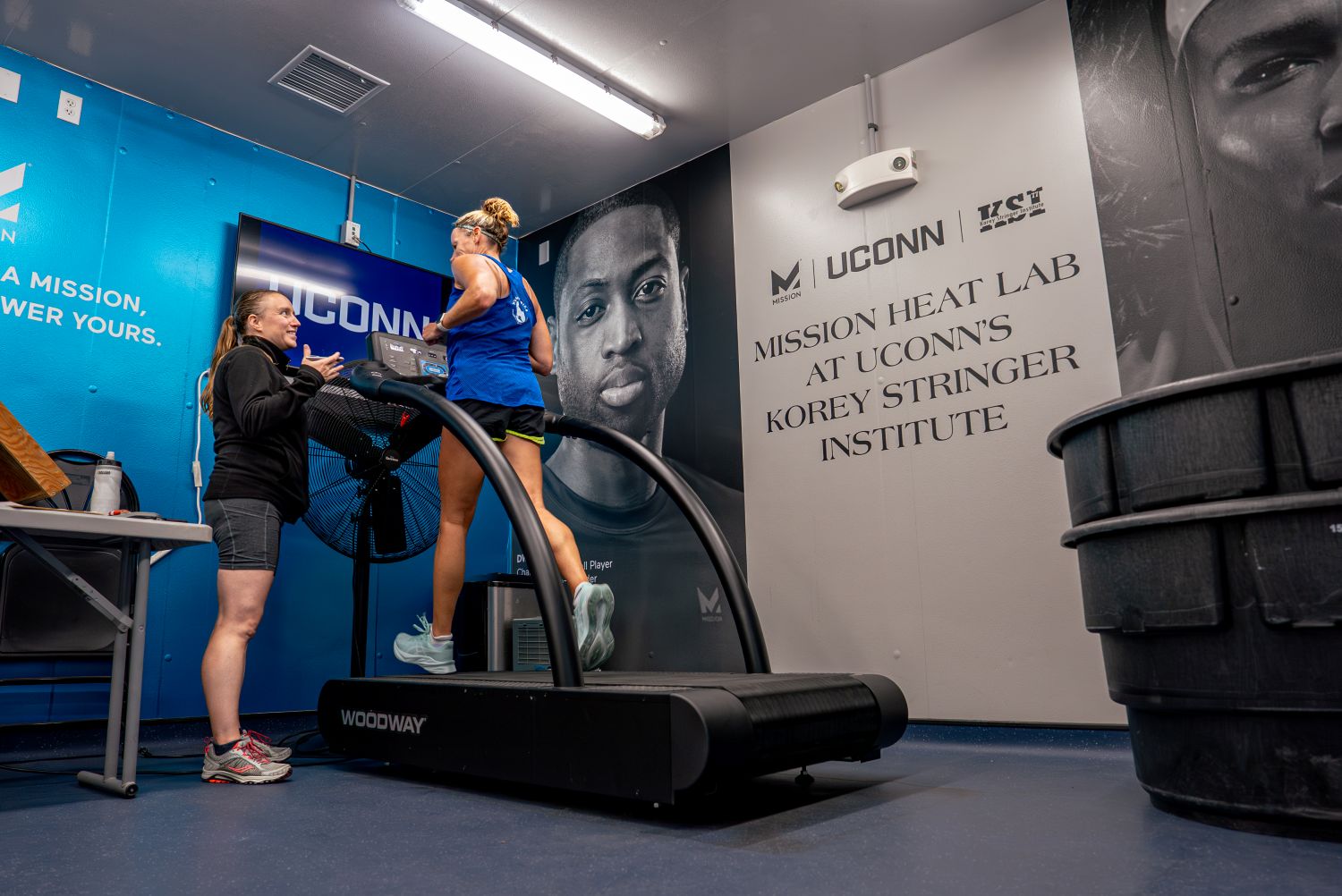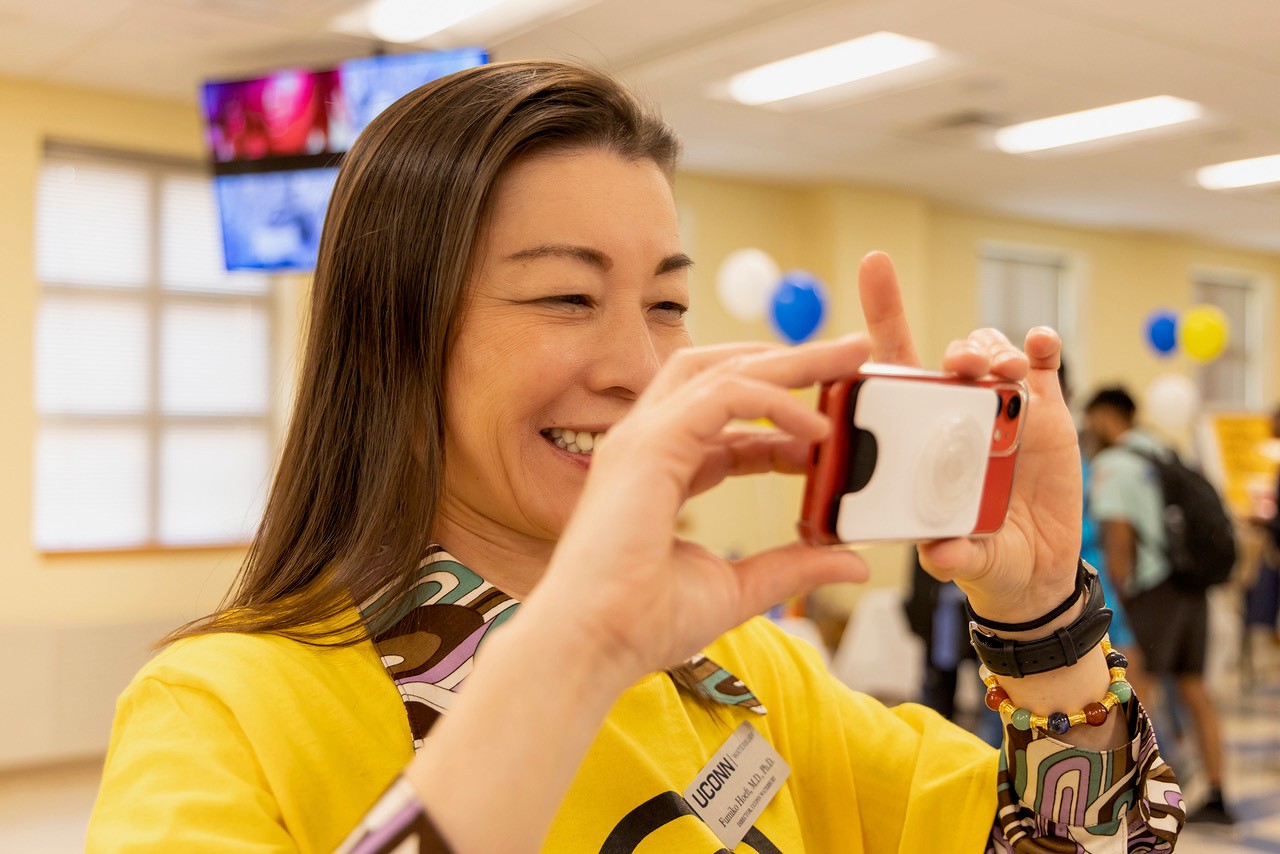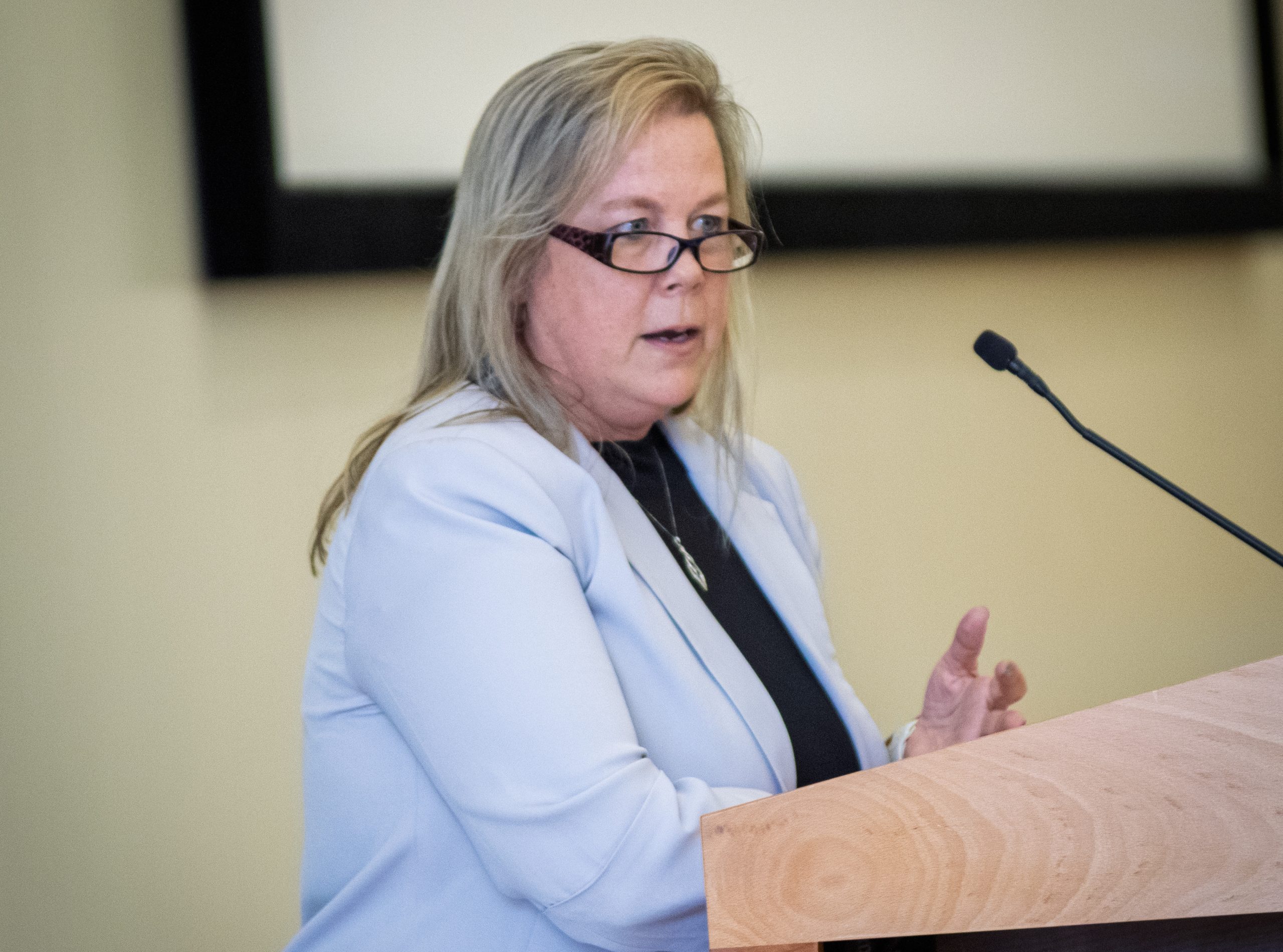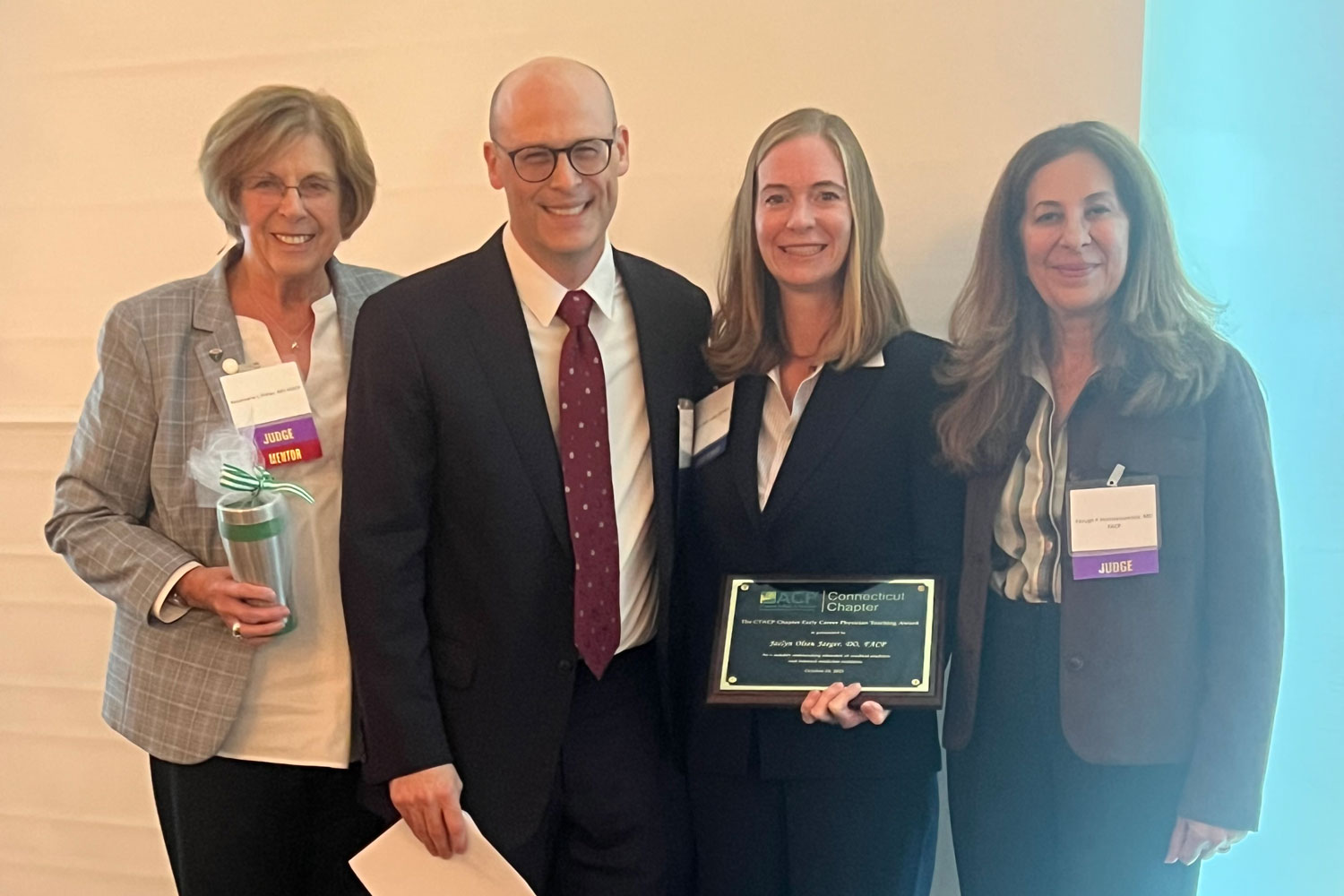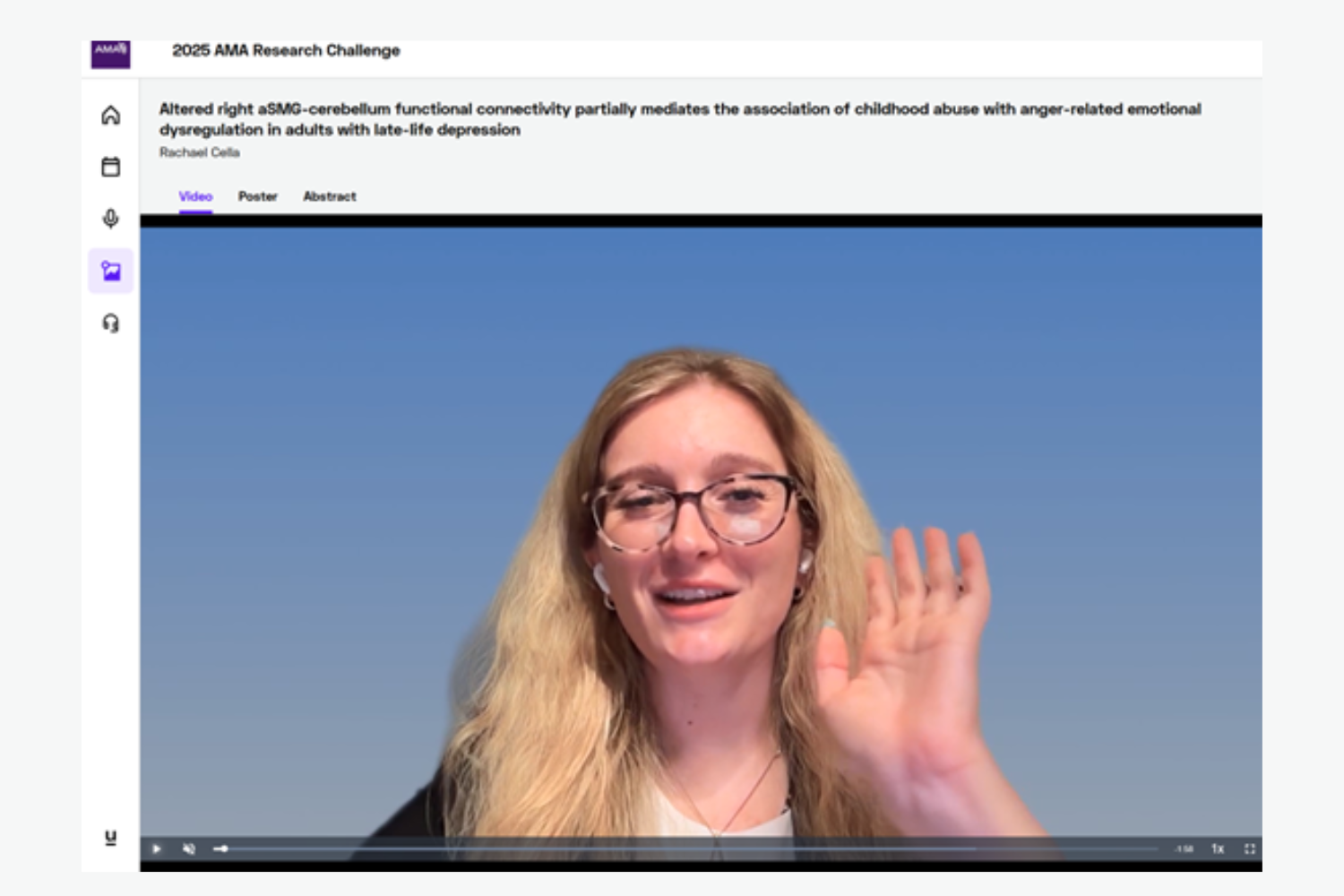Gift Focuses on Helping Students Find Their Place at UConn
Tom Jordan ’75 (CLAS) grew up in a tiny town in northern Vermont that was even smaller than his freshman dorm complex at UConn.
“It was a big adjustment for me,” he recalls. “I grew up in a big family, and I knew a lot of people in town. But I didn’t know anybody at UConn. It was pretty stressful for me to make that transition, and I struggled academically because of that. Once I formed more of a community and some friends, boy, it made a world of difference in my experience.”
That experience inspired Tom and his wife, Laura, to help with that transition for other students. They recently gave $1 million to support a new program to help students build a sense of community and belonging early on at UConn. It will train peer ambassadors to visit floors in residence halls where they will teach first-year students a variety of skills to support their mental health and well-being.
“Our students are asking us for more information about how they can take care of themselves in a pretty stressful world,” says Suzanne Onorato, executive director of UConn Student Health and Wellness, who is creating the Wellness Ambassador program.
The program will train Wellness Ambassador peer mentors to give students a safe space outside the classroom to engage, talk about health and wellness, learn about available resources, and hear from guest speakers. Research has shown that students with a sense of belonging and well-being are more likely to remain in college and be successful.
Development for the Wellness Ambassador program will begin this fall, partnering with the student ambassadors from the Wellness Community at UConn to maximize the impact of their work in other residential areas. The plan is to gradually expand to an additional seven or eight ambassadors over the next few years.
“There are a lot of ways to get lost at any point in life, but especially at that age,” Laura Jordan says. “Just think of all the pulls of social media and all the economic instability in our society. So, you’ve got to have that core sense of who you are and your purpose.
“Our hope is that, as a result of the program, students will feel a sense of wholeness,” she continues. “They’ll walk out of UConn feeling like whole people that have community and the skills to navigate the world.”
Support the Student Mental Health and Wellness Fund.
Latest UConn Today
- How’s Your Hydration? A New Tool from UConn Researchers Helps Athletes Find OutSynthesizing data from 16 human field studies, a new tool from UConn's Korey Stringer Institute aims to help athletes and the general public stay hydrated and healthy
- UConn Waterbury Dean Fumiko Hoeft Issues a Challenge, Makes Campaign Match in ‘Because of UConn’ Campaign'Student success is University success. And student success is also success for the future of our world'
- UConn Health’s Among ‘America’s Best-in-State Hospitals’John Dempsey Hospital earns Newsweek distinction 3 years running
- Driving Passion: Erika Lindeberg, Jacobs Engineering Group Inc.Academy of Distinguished Engineers inductee discusses professional and personal motivations, how she was influenced by her studies at UConn, and the importance of mentoring
- UConn Health’s Dr. Jaclyn Olsen Jaeger Recognized as Outstanding EducatorEarly Career Physician Teaching Award from Connecticut Chapter of the American College of Physicians
- UConn Medical Students Compete in Research Challenge of American Medical AssociationEight UConn School of Medicine students qualified for and competed in the exciting, national 2025 AMA Research Challenge to share their innovative research findings in virtual poster presentations Oct. 22-23.



